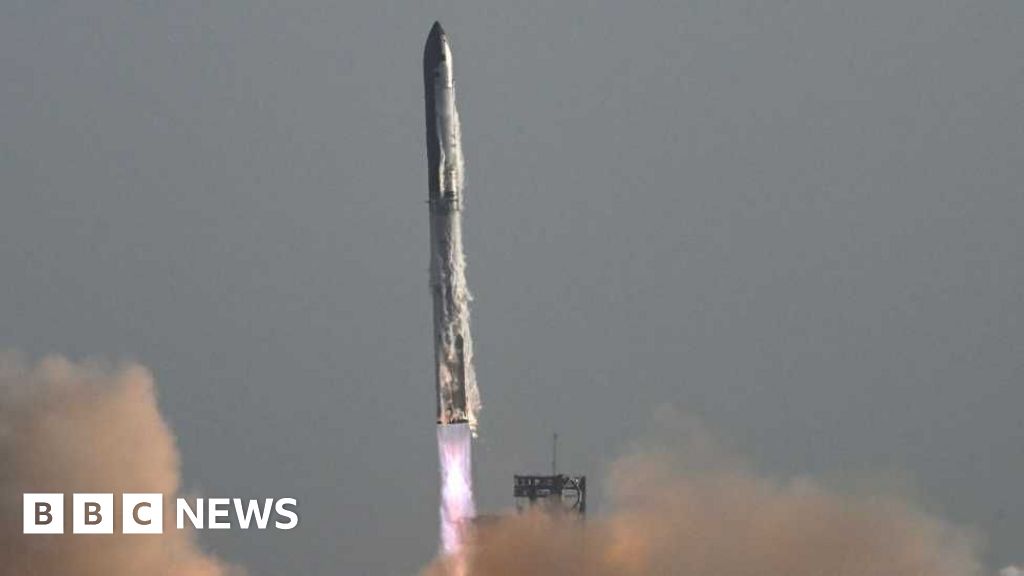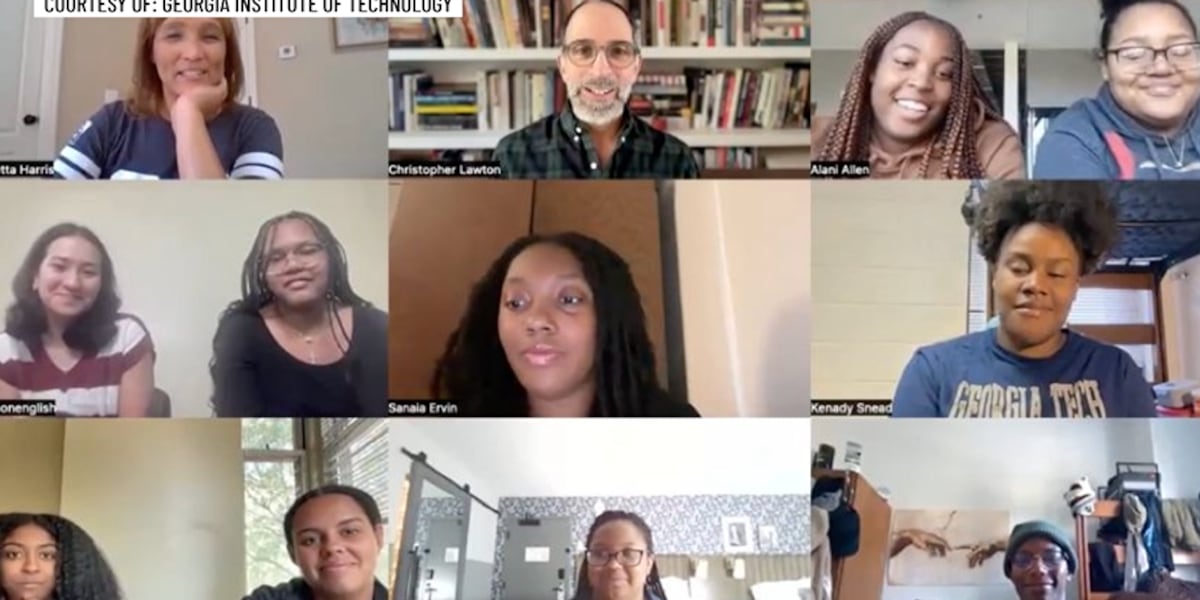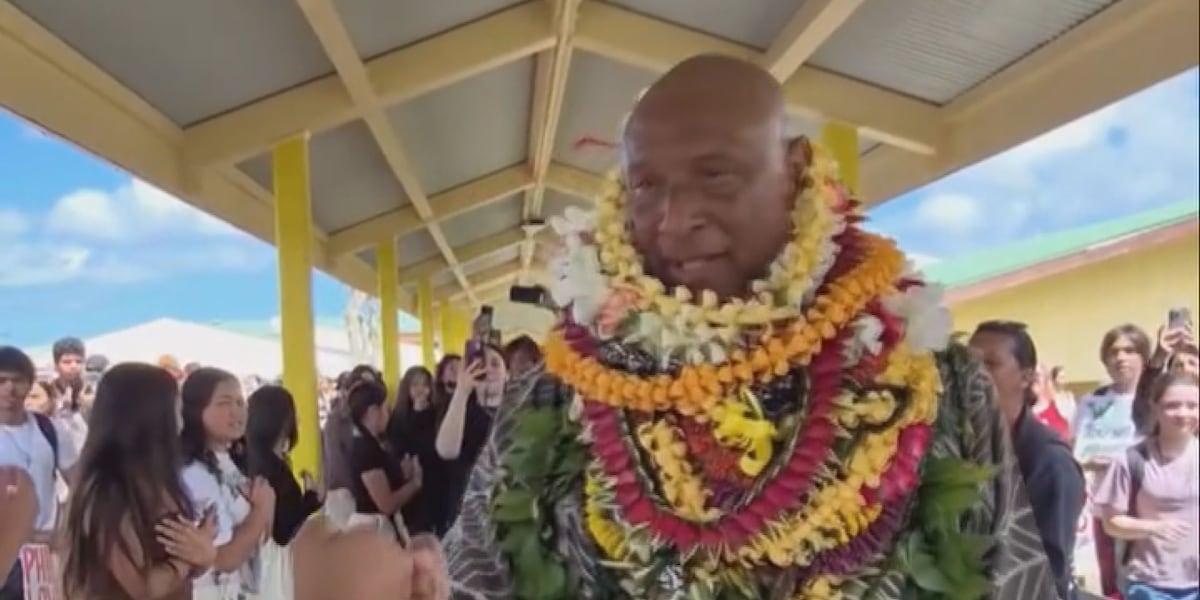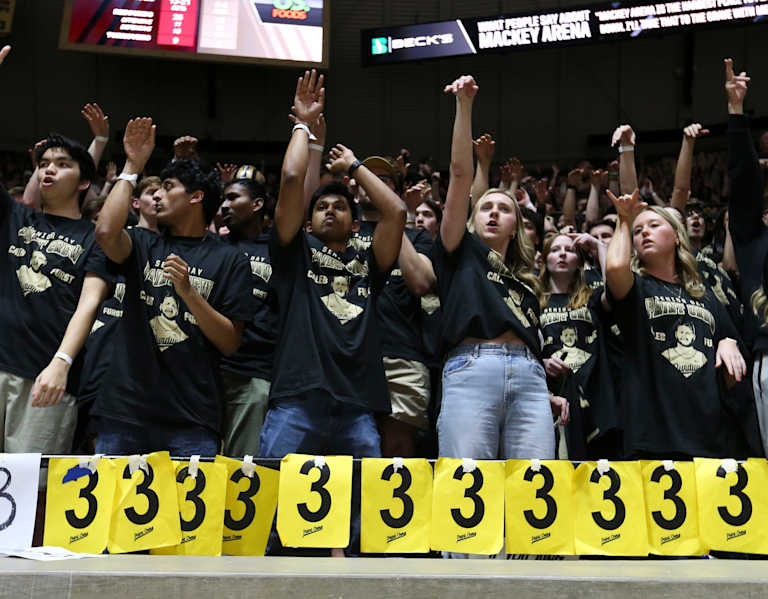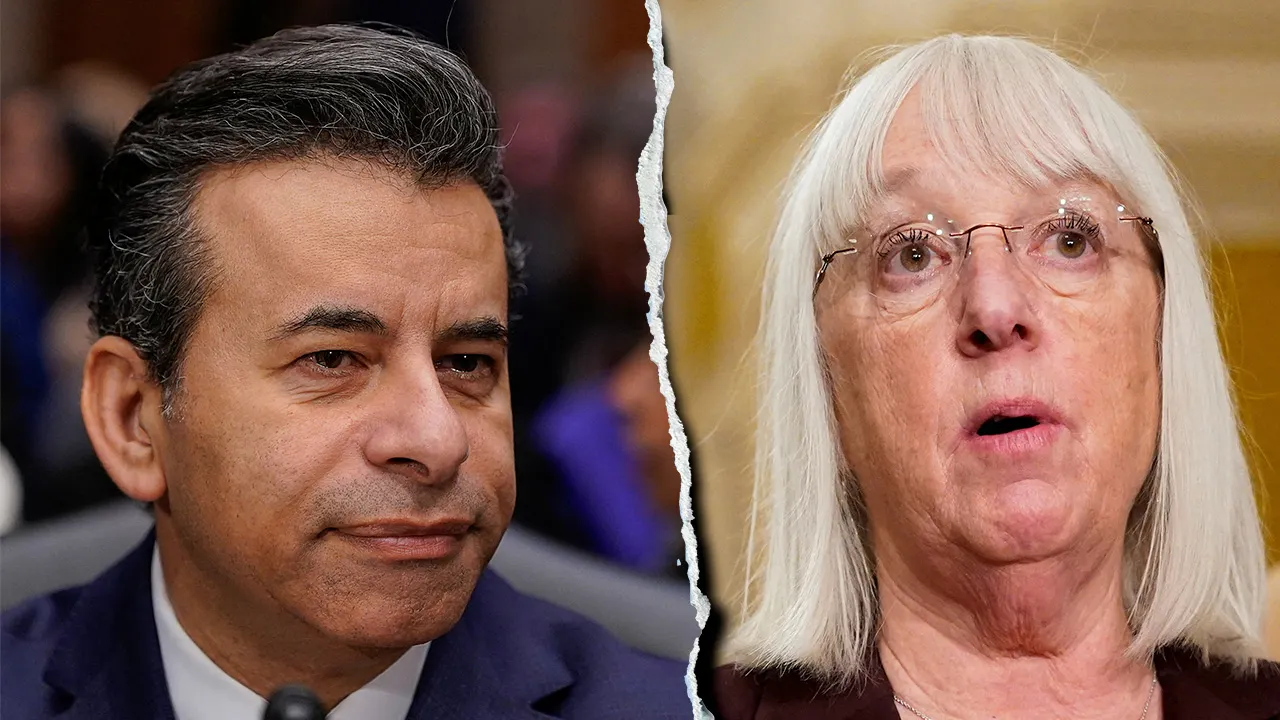World
‘People foaming at the mouth’: 10 years since chemical attacks in Ghouta

Idlib, northwest Syria – It has been 10 years since the chemical attacks in eastern Ghouta, on the outskirts of the capital, Damascus, and Umm Yahya – a nurse at a local hospital at the time – still cannot forget the images of people convulsing and foaming at the mouth.
Shortly after midnight on August 21, 2013, the Syrian regime attacked the towns of Zamalka, Ein Tarma, and Irbin in the Ghouta countryside with a nerve agent.
According to the Syrian Network for Human Rights (SNHR), a total of 1,127 people were killed in the attacks. Nearly 6,000 others suffered from suffocation and respiratory problems.
The SNHR said gassing people in their sleep demonstrates that the attacks were “premeditated and deliberate”.
“The weather in the region had been forecast to be relatively cool and calm between 02:00 and 05:00 that night, meaning those responsible knew that the air would be still and the heavy poison gas would naturally drift downwards and settle at ground level rather than blowing away,” a statement by the rights group said.
At the time, Umm Yahya had finished her shift at the hospital at about 1am. She noted that, unusually, she was short of breath, and went home. But a few minutes later, an ambulance driver she knew – Abu Khaled – was knocking on her door, telling her there were many injured people.
That surprised her, as she had not heard the sound of shelling or missile attacks.
“I went down to the ambulance and found that Abu Khaled had brought people – men, women and children – foaming at the mouth, suffocating,” Umm Yahya recalled, speaking at a memorial in Idlib that marked a decade since the Ghouta attacks.
The Sunday memorial was attended by activists, witnesses, and civil defence volunteers, who had gathered as part of the “Don’t Suffocate the Truth” campaign. They carried slogans and demanded accountability for the perpetrators of the chemical attack.
For Umm Yahya, that night in 2013 was long and painful, mired in chaos, and the body count continued to grow to the point where her hospital could no longer accommodate any more patients and victims.
“All we could see were people choking and convulsing,” she said. “We did not understand what was happening. Someone came and told us to spray the injured with water, then a doctor said to give them atropine. I didn’t know what to do, and I had nothing but oxygen to administer to them.”
Atropine is used to treat a slow heartbeat in an emergency. It is also used to reduce saliva and fluid in the respiratory tract during surgery.

It was only at dawn that the hospital staff realised the cause of the suffocation was a chemical weapon, Umm Yahya said.
“I cannot forget the gasps coming out of the suffocating children, the foam coming out of their mouths, the terrified look in their eyes. In the morning, the hospital floor was full of dead bodies.”
The nurse counted 300 dead and asked for the bodies of the women and children to be separated from the men’s. The hospital staff began wrapping them in shrouds, but there were not enough to go around.
The ordeal did not end there. While the surviving families and hospital staff were transporting some of the bodies for burial, they were attacked by warplanes.
“Those families who were killed by the chemical weapon had a merciful death, compared with those who were killed by the warplanes,” Umm Yahya said bitterly. “As a result of the bombing, there were amputated limbs and blood everywhere.”
Among the dead were paramedics and Dr Abdul Ghani, who worked at the hospital and was killed along with his son. There were so many dead people that it was decided to dig a mass grave for them instead of individual ones.
Three days after the attack, people came to the hospital to say they had not heard or seen their neighbours for days. Umm Yahya, ambulances, and a monitoring committee made their way there and were greeted by the macabre sight of whole families lying lifeless in their homes.
“Honestly, there wasn’t a door in Zamalka and Ein Tarma that we opened without finding entire families dead,” she said. “We stood helpless, not knowing what to do.”
In one of the houses, she found a bride and a groom, whose wedding she had attended just days earlier, lying lifeless near the door, as if they were trying to escape. In another house, a family of seven were found dead.
The dead were covered in nylon bags because the funeral shrouds had run out. Six days after the attack, there were still a few houses that had not been checked, their dead inhabitants still inside.

“What I saw there was horrible. The features of someone killed by chemical weapons change after five or six days. Believe me, they had no recognisable features left,” Umm Yahya said.
Some of the surviving family members would not claim their relatives because of their distorted faces, leading the nurse to record many of the dead as anonymous.
The ordeal took a great toll on Umm Yahya, and for two weeks, she was unable to work or even move her body.
“I keep remembering how the children were sobbing, and how a father begged me to save his child, and all I could tell him was that I couldn’t do anything,” she said.
“I can take care of people who are wounded, or take out shrapnel from a bombing, but I couldn’t do anything for the victims of the chemical attack. We did everything we could.”
Umm Yahya hopes there will be justice for the families and victims, and that Syria’s President Bashar al-Assad and his government are held accountable one day.
“I just hope that people will not forget Assad’s criminality, and to support us with their hearts and souls,” she said.
The SNHR has documented a total of 222 chemical weapon attacks in Syria since the first recorded use of chemical weapons on December 23, 2012, up until August 20, 2023.
“Approximately 98 percent of all these attacks have been carried out by Syrian regime forces, while approximately 2 percent were by ISIS [ISIL],” the group said.
Referring to the 2013 Ghouta attacks as “the largest chemical weapon attack in the modern age”, SNHR said the al-Assad regime is still protected by impunity and called on the United Nations to impose economic, political, and military sanctions on the Syrian government.


World
Kelsey Grammer Slams Paramount+ for Frasier Cancellation: ‘They Didn’t Really Promote It’

ad
World
Pope Francis in stable but 'guarded' condition, according to Vatican
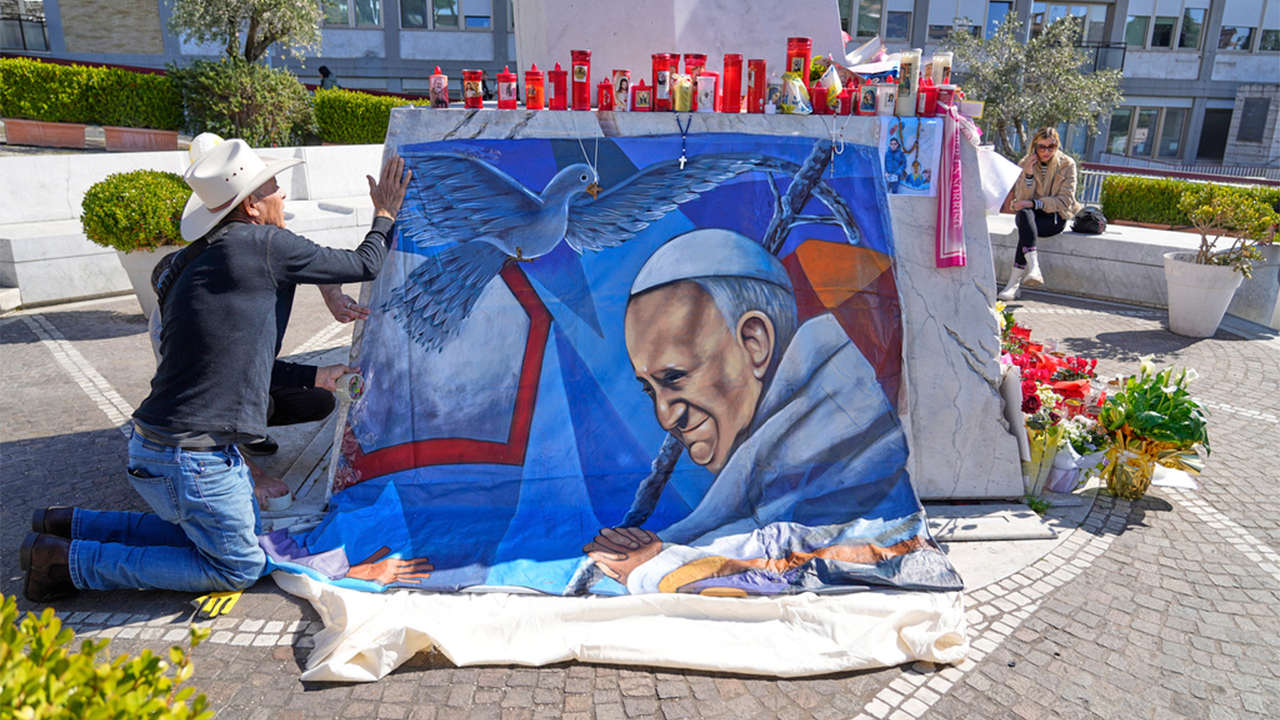
Pope Francis’ condition remained stable and “guarded” Thursday, a day when the pontiff did not have difficulty breathing and remained fever-free.
The pope had a “good night” and continued physical therapy at Rome’s Gemelli hospital for his third week of treatment for double pneumonia, the Vatican said Thursday.
“Today, the Holy Father dedicated himself to some work activities during the morning and afternoon, alternating rest and prayer,” the Vatican said. “Before lunch, he received the Eucharist.”
The next update will come Saturday, the Vatican said, because of his stable condition.
CHRISTIANS USE HALLOW APP’S PRAY40 CHALLENGE AMONG OTHER TRADITIONAL WAYS TO GROW CLOSER TO GOD AS LENT BEGINS
Pope Francis waves from the central loggia of St. Peter’s basilica during the Easter ‘Urbi et Orbi’ message and blessing to the City and the World as part of the Holy Week celebrations, in the Vatican on March 31, 2024. (Tiziana Fabi/Pool/AFP/Getty)
“The night passed quietly; the Pope is still resting,” the Holy See press office said earlier Thursday, adding that the Pope’s “clinical condition has remained stable for the last couple of days, and his doctors say he has not had more episodes of respiratory insufficiency.”
The 88-year-old pope, who has chronic lung disease and had part of one lung removed as a young man, has been stable for two days after suffering a pair of respiratory crises on Monday. Doctors underlined that his prognosis remained guarded due to the complex picture.
In recent days, he has been sleeping with a non-invasive mechanical mask to guarantee that his lungs expand properly overnight and help his recovery. He has been transitioning to receiving oxygen with a nasal tube during the day.
The pope on Wednesday marked the start of Lent by receiving ashes on his forehead and by calling the parish priest in Gaza, the Vatican said. He also added physical therapy to his hospital routine of respiratory therapy.
The Catholic Church opened the solemn Lenten season without the pope’s participation. A cardinal took his place leading a short penitential procession between two churches on the Aventine Hill and opened an Ash Wednesday sermon prepared for the pontiff with words of solidarity and thanks.
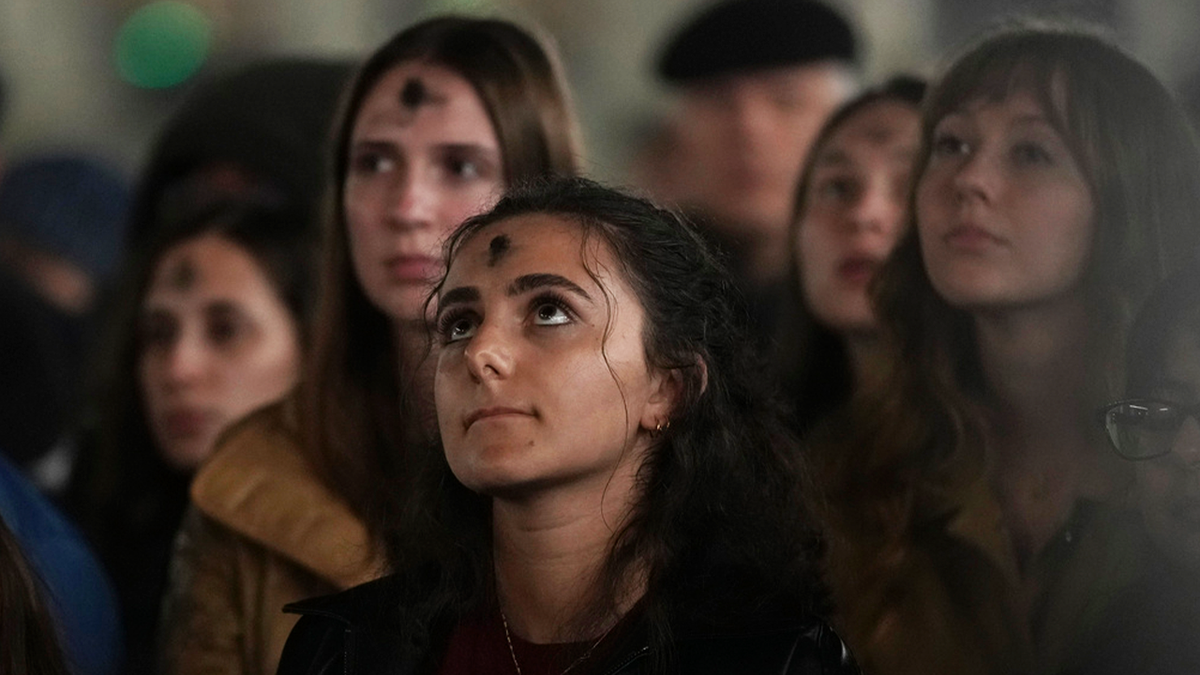
Girls, with ashes on their foreheads, pray during a rosary prayer for Pope Francis’ health in St. Peter’s Square at the Vatican, Wednesday, March 5, 2025. (AP Photo/Alessandra Tarantino)
On Ash Wednesday, observant Catholics receive a sign of the cross in ashes on their foreheads, a gesture that underscores human mortality. It is an obligatory day of fasting and abstinence that signals the start of Christianity’s most penitent season, leading to Easter on April 20.
The pope was supposed to attend a spiritual retreat this weekend with the rest of the Holy See hierarchy. On Tuesday, the Vatican said the retreat would go ahead without Francis but in “spiritual communion” with him. The theme, selected before Francis got sick, was “Hope in eternal life.”
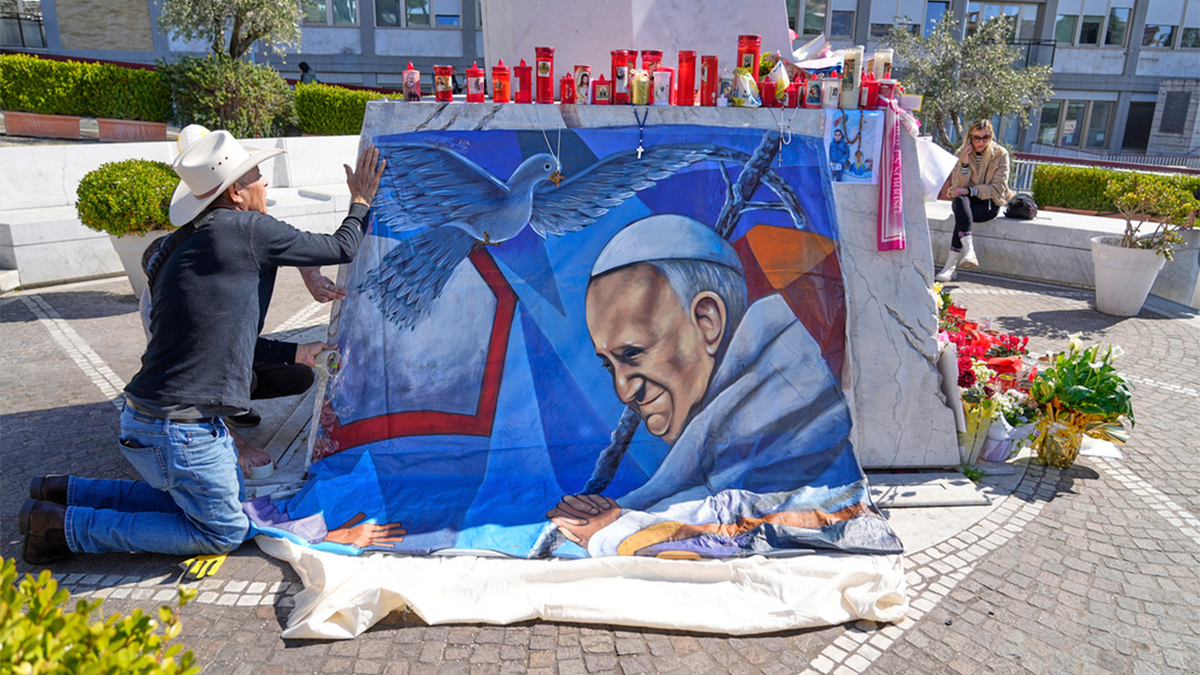
Mexican painter Roberto Marquez places a painting of Pope Francis he made outside the Agostino Gemelli hospital in Rome on Ash Wednesday. (AP Photo/Gregorio Borgia)
The Associated Press contributed to this report.
World
Trump again spreads baseless claims about Trudeau, Canada’s election

US president accuses outgoing Canadian prime minister of seeking to use issue of tariffs to extend his time in office.
United States President Donald Trump has reiterated baseless claims that outgoing Canadian Prime Minister Justin Trudeau is seeking to use US tariffs against Canada to extend his time in office, as a rift widens between the two countries.
In a social media post on Thursday, Trump said he believed Trudeau “is using the Tariff problem, which he has largely caused, in order to run again for Prime Minister”.
“So much fun to watch!” the US president wrote.
The remark follows a similar post Trump shared on his Truth Social website on Wednesday, accusing Trudeau of using trade tensions as a way “to stay in power”.
“He was unable to tell me when the Canadian Election is taking place, which made me curious, like, what’s going on here? I then realized he is trying to use this issue to stay in power. Good luck Justin!” Trump wrote.
Tensions have soared between the two leaders since Trump first threatened late last year to impose steep tariffs on Canadian goods if Trudeau’s government did not do more to stem irregular migration and drug trafficking over its border with the US.
This week, the Trump administration followed through on its plans and imposed 25-percent tariffs on most Canadian imports, as well as 10-percent levies on oil and gas.
Canada responded by announcing it would be implementing 25-percent tariffs against $106bn (155 billion Canadian) worth of US goods. Tariffs on $21bn (30 billion Canadian) came into immediate effect on Tuesday.
“This is a very dumb thing to do,” Trudeau told reporters on Tuesday of the US measures, which he described as an unjustified “trade war against Canada”.
Trudeau, who has been Canada’s prime minister since 2015, is set to step down as leader of the governing Liberal Party after it chooses its next leader on Sunday.
The new leader is expected to assume the duties of prime minister after a short transition period.
Asked during a news conference on Thursday whether he would consider staying on as prime minister in a caretaker role to help manage the uncertainty surrounding US tariffs, Trudeau said: “No. I will not be.”
He added, “I look forward to a transition to my duly elected successor in the coming days or week.”
Meanwhile, some experts in Canada have said Trump’s attack on Trudeau underscores his ignorance of the country’s political system.
Stewart Prest, a political science professor at the University of British Columbia, said on social media that the US president’s remarks represent “a reckless disregard for the Canadian democratic system”.
“To be clear, Trudeau will step aside after the Liberal leadership race,” Prest wrote on the social media platform Bluesky on Wednesday.
Under Canadian electoral rules, the next federal election must be held by October 20.
But the Liberals, as the party in government, can choose to trigger a vote before then.
An election could also be called earlier if opposition parties pass a vote of no confidence in Canada’s Parliament, which is set to resume on March 24.
As it currently stands, no election date has been formally set.
“Parliamentary democracy is by design more flexible than the American presidential system, with its fixed election dates,” Prest explained.
“That’s deliberate, as it makes it much easier to get rid of a leader who is either unfit or unpopular – or both.”
Many experts have speculated that the Liberals may choose to call a vote shortly after their next leader is chosen in an effort to capitalise on a recent upswing in public support.
At the beginning of the year, the Liberals had been trailing the opposition Conservatives by as many as 26 percentage points.
But Trudeau’s decision to resign – coupled with the race to select his replacement as Liberal leader and Trump’s threats against Canada – have helped the party bounce back in the polls.
-

 Sports1 week ago
Sports1 week agoNHL trade board 7.0: The 4 Nations break is over, and things are about to get real
-

 News1 week ago
News1 week agoJustice Dept. Takes Broad View of Trump’s Jan. 6 Pardons
-

 World1 week ago
World1 week agoHamas says deal reached with Israel to release more than 600 Palestinians
-

 Science1 week ago
Science1 week agoKilling 166 million birds hasn’t helped poultry farmers stop H5N1. Is there a better way?
-

 News1 week ago
News1 week agoChristianity’s Decline in U.S. Appears to Have Halted, Major Study Shows
-
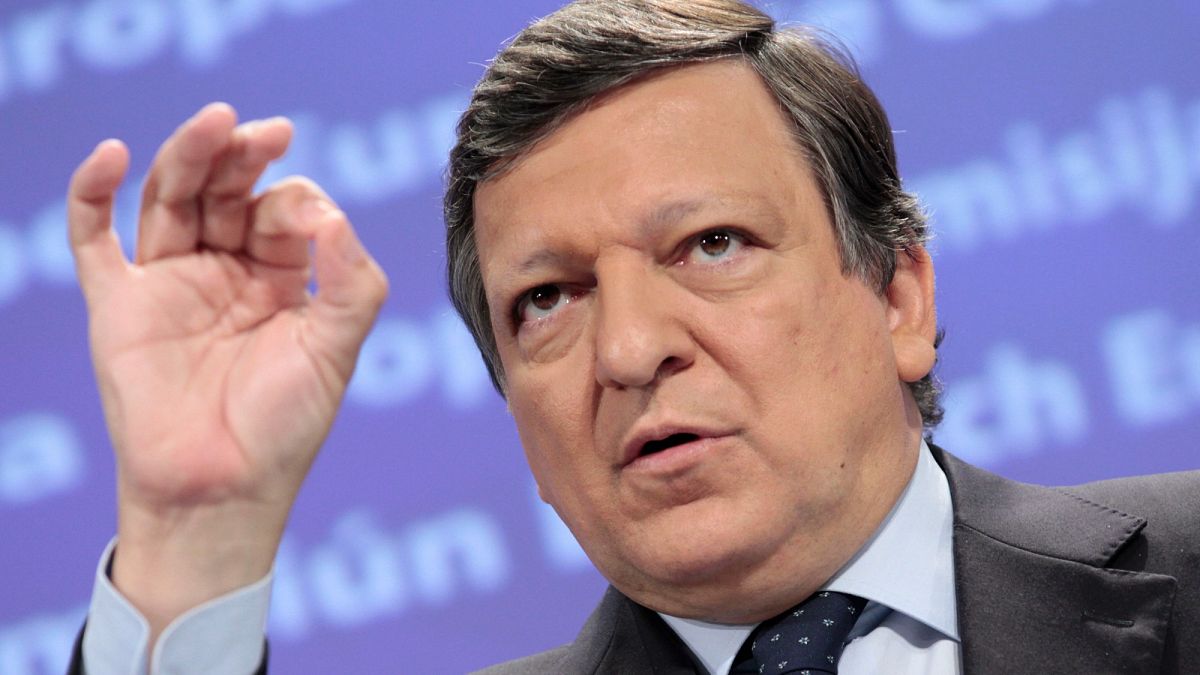
 World1 week ago
World1 week agoGermany's Merz ‘resolute and determined,' former EU chief Barroso says
-

 Technology1 week ago
Technology1 week agoMicrosoft makes Copilot Voice and Think Deeper free with unlimited use
-

 Politics1 week ago
Politics1 week agoSome Republicans Sharply Criticize Trump’s Embrace of Russia at the U.N.




